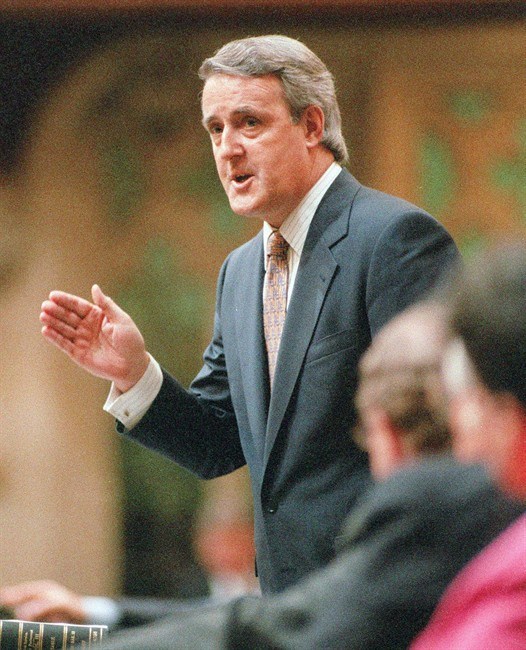 The 2015 federal election campaign is so long, it looks as if there’s enough time to spend the last week on a retro repeat of the 1988 “free trade” election.
The 2015 federal election campaign is so long, it looks as if there’s enough time to spend the last week on a retro repeat of the 1988 “free trade” election.
The tentative agreement Monday on the mammoth Trans-Pacific Partnership arrived just as the federal leaders were groping around for something with which to finish strong. A complicated international trade deal doesn’t normally hit people where they live. But you could say that about women wearing niqabs at citizenship ceremonies, too, and that took off like a rocket.
If the TPP becomes the focus, here are some points to keep in mind:
• It worked last time: Then-prime minister Brian Mulroney signed the free trade deal with the U.S. in January 1988, then called an election for November that was dominated by the deal. The Liberals under John Turner opposed the deal, as did Ed Broadbent’s NDP. In the end, Mulroney got a reduced majority, the Liberals formed the Opposition and the NDP scored a record high seat count.
Over 27 years, there has been a huge increase in Canadian trade with the U.S., so it appears to have worked, although there are still pockets of resentment in some sectors.
This time around, it’s endorsed and recommended by another Conservative government. The Liberals under Justin Trudeau are non-committal at this point, likely remembering Turner’s experience. The NDP are more skeptical and leader Thomas Mulcair has declared he won’t be bound by it.
The NDP has been losing support, particularly in Quebec, and that’s where there’s some ground to be gained with the agriculture sector opposing the deal.
• It’s not happening overnight: The TPP has to be ratified by 12 national governments around the Pacific Rim. It’s not a sure thing and it’s going take a long time. Getting anything signed in the U.S. during a presidential election year is an uphill struggle. Similar complications can arise in other countries.
Billions of federal dollars are promised to mitigate any downside to Canadian farmers. They stand to get payments for 15 years even after any deal becomes law. So it would take years for the TPP deal to take real effect.
• There’s less emotional baggage: All the usual hangups and preoccupations Canadians have about dealing with the U.S. came to the fore in 1988. It was an acutely sensitive topic that involved the Canadian identity. The extension of the deal to Mexico a few years later through the North American Free Trade Agreement was more complicated because it was tripartite, but not as soul-searching on the Canadian end.
The TPP involves a grab-bag assortment of a dozen countries (Australia, Chile, Malaysia, et al.) with which Canada has just professional working relationships.
• Free trade isn’t always free trade: Even after 27 years of free trade, Canada, particularly B.C., still sells lumber to the U.S. on which duties and quotas are sometimes imposed. The Softwood Lumber Agreement under which they are imposed could expire this month. That’s a much bigger deal for the B.C. economy than the TPP.
• It’s not B.C.-centric: Auto parts and agriculture are the big focus as potential losers, and neither sector is dominant in B.C., so there’s more room to back it enthusiastically. B.C. Minister of International Trade Teresa Wat issued congratulations all around and said B.C. officials have worked closely with negotiators.
There would be a huge upside for B.C.’s Pacific Gateway strategy if the deal ever takes hold. B.C. exporters (lumber, agrifoods, seafood) would get better access to Asian markets where Canada does not currently have agreements, particularly in Southeast Asia.
Wat said: “The agreement would also help attract foreign direct investment in B.C. and level the playing field for B.C. companies by establishing a common set of rules.”
B.C. Liberals have portrayed the NDP as being opposed to the TPP and the party is on record criticizing elements of a similar European pact.
NDP Leader John Horgan said Monday he has asked his caucus to talk to various sectors to see how they feel about it, study the text of the deal “and we’ll see where we go from there. I don’t rule out anything until I’ve read the details.”



